Documentos clave
261769
8-Methylquinoline
97%
Sinónimos:
o-Toluquinoline
About This Item
Productos recomendados
Quality Level
assay
97%
form
liquid
refractive index
n20/D 1.614 (lit.)
bp
143 °C/34 mmHg (lit.)
mp
−80 °C (lit.)
density
1.052 g/mL at 25 °C (lit.)
SMILES string
Cc1cccc2cccnc12
InChI
1S/C10H9N/c1-8-4-2-5-9-6-3-7-11-10(8)9/h2-7H,1H3
InChI key
JRLTTZUODKEYDH-UHFFFAOYSA-N
¿Está buscando productos similares? Visita Guía de comparación de productos
Categorías relacionadas
1 of 4
Este artículo | 108928 | 683914 | 236284 |
|---|---|---|---|
| mp −80 °C (lit.) | mp - | mp 64-68 °C | mp 9-12 °C (lit.) |
| bp 143 °C/34 mmHg (lit.) | bp 256-260 °C (lit.) | bp - | bp 273 °C (lit.) |
| refractive index n20/D 1.614 (lit.) | refractive index n20/D 1.614 (lit.) | refractive index - | refractive index n20/D 1.561 (lit.) |
| density 1.052 g/mL at 25 °C (lit.) | density 1.067 g/mL at 20 °C (lit.) | density - | density 1.254 g/mL at 25 °C (lit.) |
| form liquid | form - | form solid | form liquid |
signalword
Warning
hcodes
Hazard Classifications
Eye Irrit. 2 - Skin Irrit. 2 - STOT SE 3
target_organs
Respiratory system
Storage Class
10 - Combustible liquids
wgk_germany
WGK 3
flash_point_f
221.0 °F - closed cup
flash_point_c
105 °C - closed cup
ppe
Eyeshields, Gloves, type ABEK (EN14387) respirator filter
Elija entre una de las versiones más recientes:
¿Ya tiene este producto?
Encuentre la documentación para los productos que ha comprado recientemente en la Biblioteca de documentos.
Los clientes también vieron
Nuestro equipo de científicos tiene experiencia en todas las áreas de investigación: Ciencias de la vida, Ciencia de los materiales, Síntesis química, Cromatografía, Analítica y muchas otras.
Póngase en contacto con el Servicio técnico
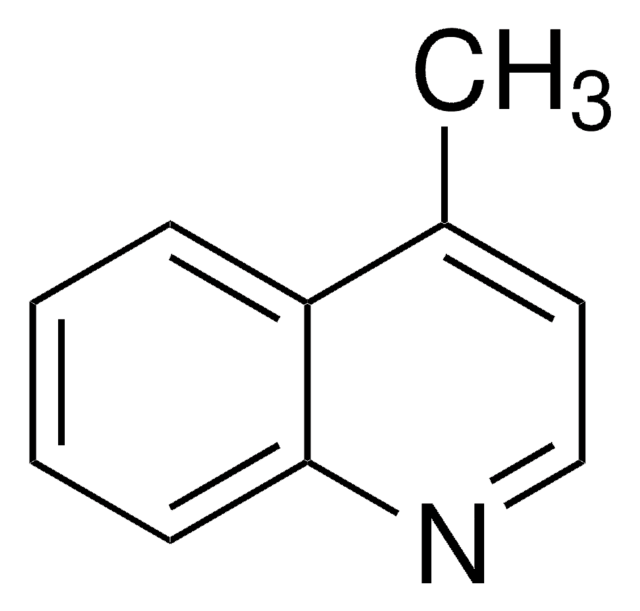




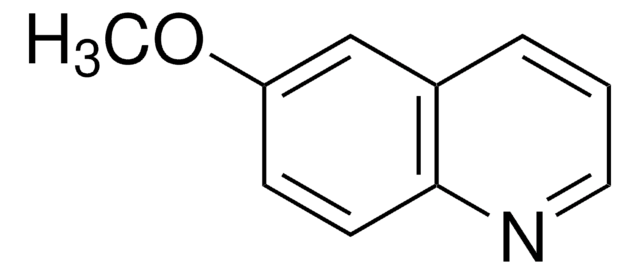

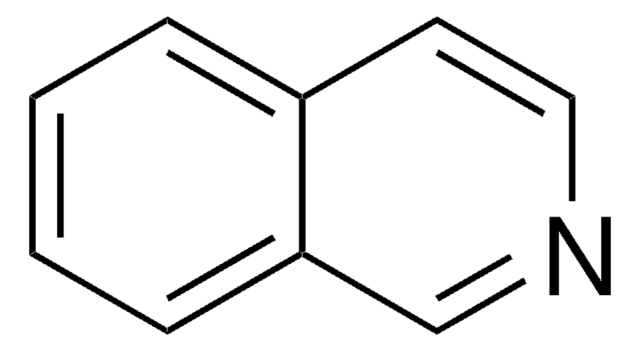

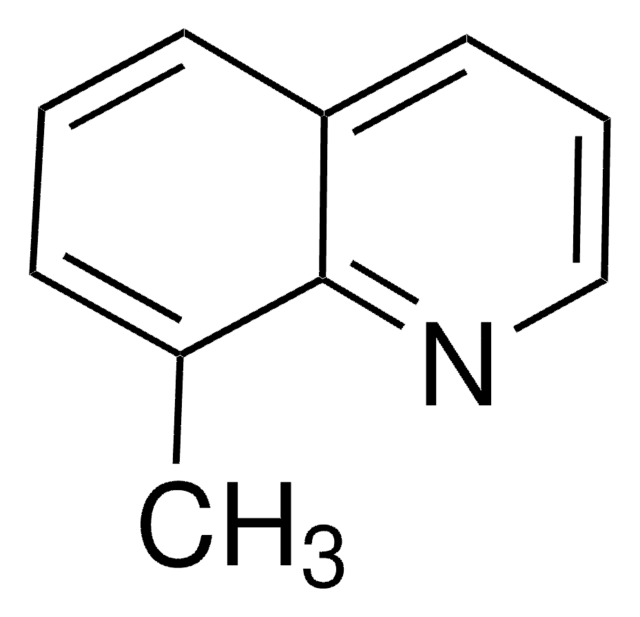
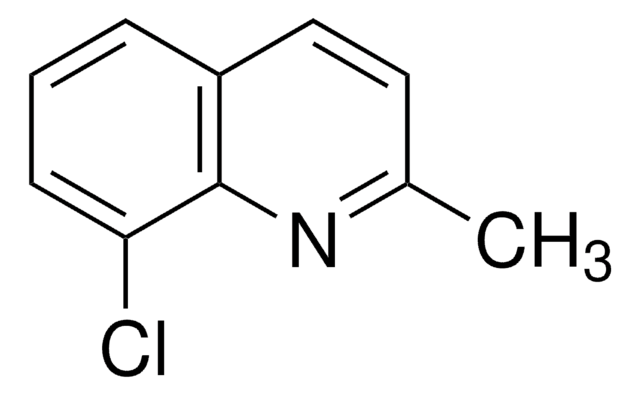


![Benzo[h]quinoline 97%](/deepweb/assets/sigmaaldrich/product/structures/344/715/928932d2-4ca4-4402-b56c-85a80100ce17/640/928932d2-4ca4-4402-b56c-85a80100ce17.png)

